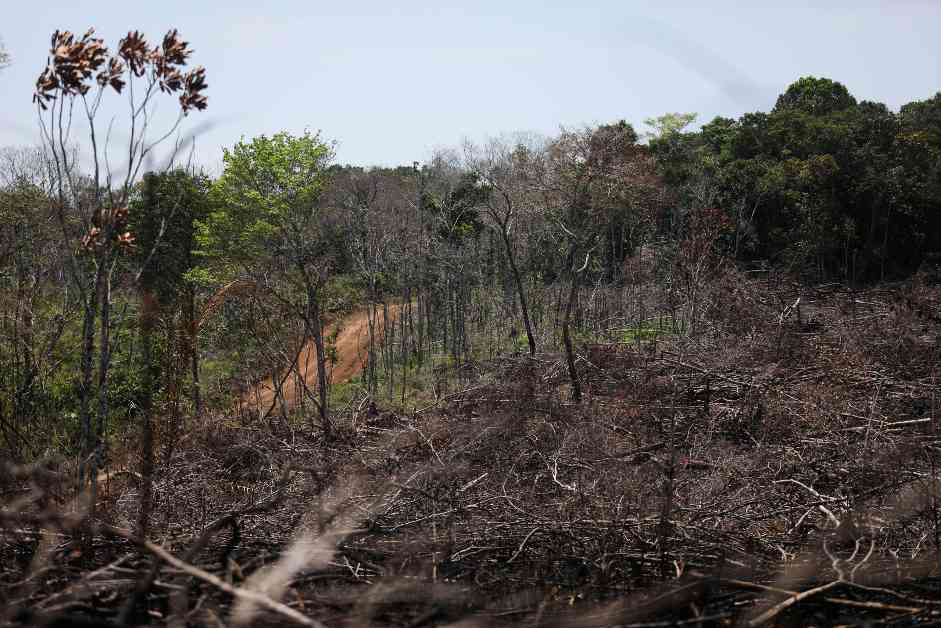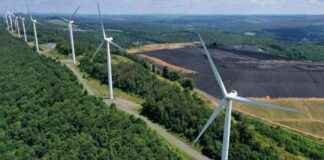Colombia Faces Surging Deforestation: A Closer Look at the Environmental Crisis
In a startling revelation, Colombia’s Environment Minister, Susana Muhamad, disclosed that deforestation in the country surged by 35% in 2024, marking a stark contrast from the 23-year low achieved the previous year. This concerning trend has been largely driven by an increase in deforestation activities in the Amazon region, which is a crucial ecosystem for global biodiversity. Muhamad emphasized the gravity of the situation during a press conference in Bogota, shedding light on the factors contributing to this environmental crisis.
The Rise in Deforestation: A Disturbing Reality
The data presented by Muhamad indicates that deforestation in Colombia escalated to 1,070 square kilometers in 2024, a significant jump from the approximately 792 square kilometers recorded in 2023. This surge comes on the heels of a downward trend in deforestation that saw figures drop to around 1,235 square kilometers in 2022. Muhamad highlighted that the increase in deforestation activities in 2024 primarily involved medium-sized patches of land and operations funded by substantial capital, hinting at the involvement of organized crime syndicates rather than rural communities.
Despite facing a concerning uptick in deforestation rates, Muhamad sought to provide a glimmer of hope by noting that 2024 still marked the second-lowest figure in the past 23 years. This assertion underscores the gravity of the situation while also acknowledging the progress made in previous years. The minister’s insights shed light on the complex dynamics at play in Colombia’s environmental landscape, where competing interests and challenges threaten the delicate balance of its ecosystems.
Challenges on the Horizon: COP16 Presidency in Jeopardy
Colombia’s role as the host of last year’s COP16 United Nations biodiversity summit has placed the country in the global spotlight for its environmental stewardship. However, the recent surge in deforestation rates has cast a shadow over its environmental commitments, raising questions about the efficacy of its conservation efforts. With the country slated to preside over a resumed session of the COP16 negotiations in Rome, the stakes are higher than ever for Colombia to demonstrate its commitment to combating deforestation and safeguarding its natural resources.
The upcoming negotiations in Rome will provide a crucial platform for countries to address pressing issues related to biodiversity conservation and sustainable development. One of the key challenges facing delegates is the allocation of new funds for biodiversity initiatives, with particular emphasis on ensuring equitable access to resources for all nations. The debate over the administration of the current biodiversity fund, housed under the Global Environment Facility (GEF), highlights the need for a comprehensive and inclusive approach to conservation funding that prioritizes the needs of developing countries.
As Colombia grapples with the aftermath of the deforestation surge and the implications for its environmental policies, the resignation of Environment Minister Susana Muhamad adds another layer of complexity to the situation. Muhamad’s departure from the government of President Gustavo Petro underscores the challenges of navigating political and environmental agendas in a rapidly changing landscape. The allegations surrounding the appointment of Armando Benedetti to the cabinet further underscore the need for transparency and accountability in environmental governance.
In conclusion, the surge in deforestation rates in Colombia serves as a stark reminder of the urgent need for coordinated action to address environmental challenges at both local and global levels. By leveraging expert insights, engaging stakeholders, and fostering a culture of environmental stewardship, Colombia can pave the way for a sustainable future that preserves its rich biodiversity for generations to come.














